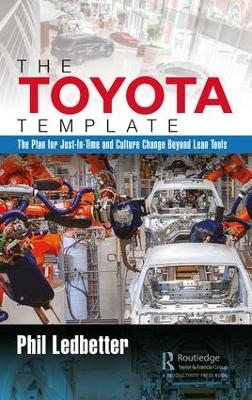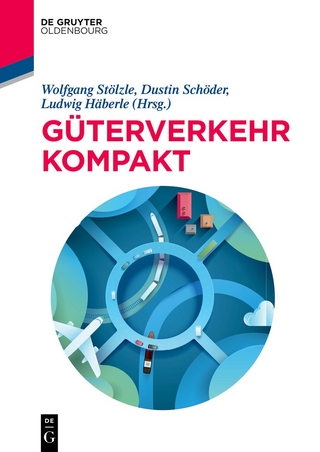
The Toyota Template
CRC Press (Verlag)
978-1-138-57871-5 (ISBN)
Much has been written about Toyota over the last 30 years focusing on both its products (superior vehicles), and its operational excellence based on its Toyota Production System (TPS). The Toyota Template details the critical concepts and methods that Taiichi Ohno implemented in developing the Toyota Production System. This book is different, however, regarding the parallels it draws between Toyota’s pre-TPS condition and companies today who are attempting to become more efficient and Lean.
In view of efficiency, excellence, culture, and general "Leanness," many organizations are in the same position as Toyota prior to implementing what was once called the "Ohno System." The building of TPS, with the goal to eliminate waste, evolved as problems were encountered and solutions put in place. A wonderful byproduct of these years of work was the growth of a problem-solving culture throughout Toyota that is unique in the business world.
Currently, the Toyota Production System is well established. Though constantly improving, the historical picture is visible. The question many have tried to answer for their own companies is "how can they achieve world class efficiency?" The Toyota Template answers this question. This book:
Explains the critically important elements of the Toyota Production System.
Analyzes the sequence of implementation as the system developed.
Places these elements in a logical order of implementation based on the history and current knowledge. In addition, it addresses the effect of each element on the culture.
The author was prompted to write this book because of his personal observations of the failure of most attempts to develop Lean systems. What makes Toyota stand out is not any of the individual elements – It is crucially important to have all the elements together as a system. Most attempts have been focused on bits and pieces of the elements, or the tools.
The Toyota Template is about the relevance of the Toyota Production System to "any type of business" today. It is not an all-inclusive explanation of every aspect of TPS. Rather, this book succinctly identifies the key elements, places them in a logical, sequential order of implementation, and explains how each contributed to the formation of the Toyota culture.
Phil Ledbetter is a passionate advocate of the Toyota Production System and the many benefits it can provide for business. He worked as a leader in management with Toyota Motor Manufacturing – KY for 16 years. As Group Leader, he learned, practiced, and taught the many elements of the TPS. He was certified as a kaizen leader where he taught other members of the management team problem solving. In his time at Toyota he was immersed in all aspects of TPS. Phil is an accomplished teacher and conference speaker having developed classes for and taught hundreds of employees on all aspects of the Toyota Production System. Since leaving Toyota, Phil has been instrumental in the implementation of various Toyota methods in the cabinet, decorative glass, and crane fields including successful implementation of pull systems, quality systems, andon systems and 5S programs among other accomplishments. He’s also been a franchised small business owner. He has: First hand, hands-on knowledge of the Toyota Production System (16 years in management at Toyota). The ability to adapt TPS knowledge to the particular context. Excellent problem solving skills. Passionate about true lean/TPS. . CORE COMPETANCIES Demonstrated expertise in the Toyota Production System, *Certified Kaizen Train-the-Trainer, *Quality Circle Advisor, *7-Step Problem Solving (A3), *Hoshin Kanri, *Heijunka, *Jidoka, *5S, *Continuous One-Piece Flow, *Visual Controls, *Standardized Work, *SMED, *Pull Systems, *Poke Yoke, *Andon, *TWI, *TPM, *Budgeting/Forecasting, *Inventory Management, *Interviewing
Chapter 1 The Problem: Distance from Toyota Chapter 2 The Predicament: Perplexing Failure Chapter 3 The Position: Plant First Chapter 4 The Purpose: Will and Skill Chapter 5 The Plan: Hoshin Kanri Chapter 6 The Property: Waste Elimination Chapter 7 The Practice: Standard Work Chapter 8 The Patois: 8-Step Problem-Solving Chapter 9 The Pattern: Flow, Pull, and Heijunka Chapter 10 The Program: Jidoka, Quality at the Source Chapter 11 The Path: The Toyota Template Chapter 12 The Proof: TPS Results Chapter 13 The Perceptions: Mental Images Chapter 14 The Post Script: Personal Matters
| Erscheinungsdatum | 26.04.2018 |
|---|---|
| Zusatzinfo | 11 Line drawings, black and white; 2 Halftones, black and white; 13 Illustrations, black and white |
| Verlagsort | London |
| Sprache | englisch |
| Maße | 156 x 234 mm |
| Gewicht | 294 g |
| Themenwelt | Technik |
| Wirtschaft ► Betriebswirtschaft / Management ► Logistik / Produktion | |
| Wirtschaft ► Betriebswirtschaft / Management ► Unternehmensführung / Management | |
| ISBN-10 | 1-138-57871-1 / 1138578711 |
| ISBN-13 | 978-1-138-57871-5 / 9781138578715 |
| Zustand | Neuware |
| Haben Sie eine Frage zum Produkt? |
aus dem Bereich


